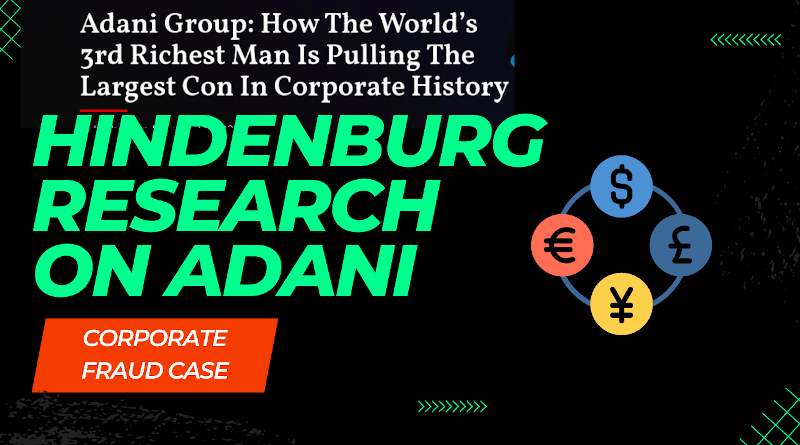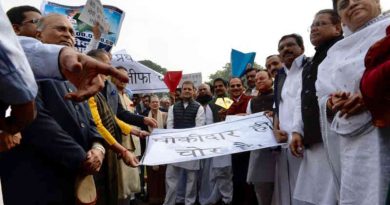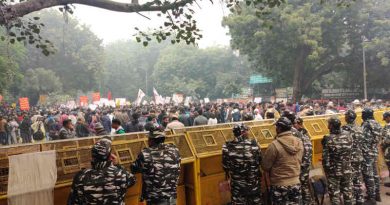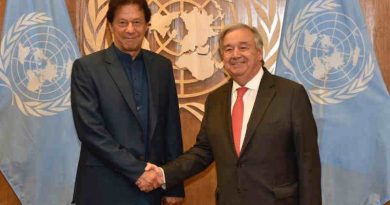Supreme Court Succumbs Again to Protect Adani Group in Money Laundering Case
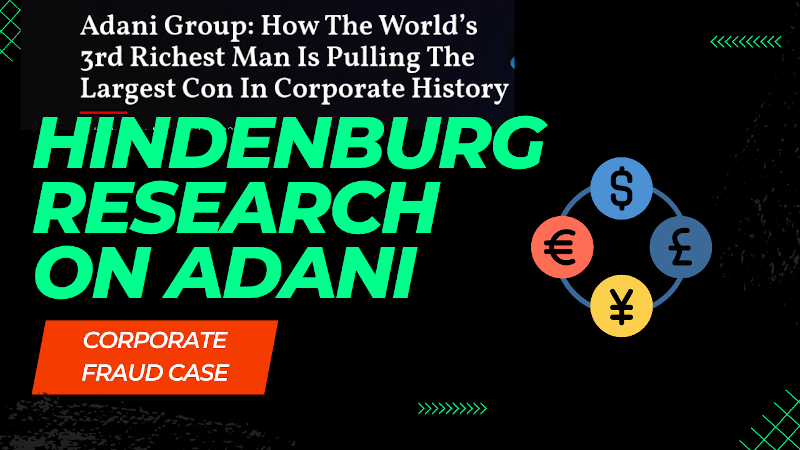
Supreme Court Succumbs Again to Protect Adani Group in Money Laundering Case
The Modi-Adani collusion case is termed as the Modani (portmanteau for Modi and Adani) corruption scandal, which is perhaps the biggest grand corruption crime in the history of mankind.
By Rakesh Raman
As the Supreme Court of India has become a toothless outfit, it has failed once again to deliver justice in the money laundering and accounting fraud case of Adani Group.
In its judgment of January 3, 2024, a Supreme Court bench headed by Chief Justice of India D. Y. Chandrachud said there were no grounds to transfer the probe to a special investigation team (SIT).
The court relied on the opaque investigation being conducted by the Securities and Exchange Board of India (SEBI) which – like the Supreme Court – is a complicit organization trying to exonerate the Adani Group and its chairman Gautam Adani.
It is reported that SEBI has investigated 22 of the 24 cases in the Adani case and the Supreme Court has given it three more months to complete the investigation. But the SEBI probe findings so far have not been revealed.
In his tweet on January 3, Gautam Adani celebrated the Supreme Court decision with his remarks, “Truth has prevailed. Satyameva Jayate.”
But oligarch Gautam Adani did not mention that the Supreme Court and other law-enforcement agencies are protecting him unscrupulously because he is a partner of India’s prime minister (PM) Narendra Modi who himself is allegedly involved in a number of corruption cases.
These cases include the PM-CARES Fund case, Rafale corruption case, Sri Lanka energy project case involving Adani Group, Modi-Adani collusion case, Sahara-Birla payoff case, and a number of other cases in which Modi’s party colleagues are allegedly involved.
In fact, the Modi-Adani collusion case is termed as the Modani (portmanteau for Modi and Adani) corruption scandal, which is perhaps the biggest grand corruption crime in the history of mankind.
In this case, it is alleged that Gautam Adani colluded with Modi for about two decades to plunder India’s public assets. Since the Indian courts, law-enforcement agencies, and media houses cannot dare to investigate or report about the Modi-Adani collusion case honestly, some foreign publications have been covering the stories of this corruption scandal involving billions of dollars.
[ Read: What Foreign Media Says on Modi-Adani Corruption Scandal ]
Surprisingly, however, the Supreme Court ignored all the investigative reports of credible media organizations and almost exonerated Adani and his allegedly illicit businesses.
In the past when Modi or his associates were accused in such cases, the Supreme Court took questionable decisions to favour Modi or formed perfunctory committees which could not dare to point the finger at Modi or his friends.
It has happened in cases such as the Rafale corruption case, Gujarat massacre case, Article 370 case of Kashmir, Pegasus spyware case, draconian demonetization decision of Modi, cases of farmers’ protests, case of PM-CARES Fund of PM Modi, electronic voting machine (EVM) fraud case, the mysterious death case of Judge Loya (Brij Gopal Hari Kishan Loya), and many others.
Now it appears that the Supreme Court has become the Godi court (or lapdog court) of the Modi regime. The Supreme Court judges are either scared of the Modi regime or corrupt who want plum positions after their retirement. That is why they fail to deliver justice.
While Adani is accused of a serious financial crime, the Supreme Court is trying to brush the case under the carpet with the formation of toothless committees or with the perfunctory probe by SEBI which cannot file any report that can get Adani prosecuted and convicted.
[ Also Read: Chief Justice Informed About Failure of Legal Aid System in India ]
[ Also Read: Research Report Released on the Use of English in Indian Courts ]
[ Also Read: Research Paper: 20 Bitter Truths in the Indian Legal System ]
In all probability, the findings of the SEBI report will not be made public and Adani will be acquitted of all the charges. Subsequently, Adani, Modi, and Modi’s colleagues will silence the opposition voices by saying that the Supreme Court has found that Adani is honest and no fraud has happened in this case.
If you evaluate the judgments of the Supreme Court through an Artificial Intelligence (AI)-based expert system, you will find that almost all the judgments, dismissal of petitions, or delays in decisions are either wrong or biased in favour of the Modi regime.
ADANI GROUP INVESTIGATION AND PROSECUTION
An investigative report of Hindenburg Research accused Adani of commiting one of the biggest corporate frauds in the world. In the report released on January 24, 2023, Hindenburg said that the Adani Group has engaged in a brazen stock manipulation and accounting fraud scheme over the course of decades.
When the opposition leaders questioned Modi in the parliament on the Modi government’s complicity in the Adani fraud, Modi did not even touch the Adani issue. Rather, he delivered a long rhetoric to praise himself and baselessly accuse the opposition party Congress of corruption.
In fact, it is a clear case of grand corruption and money laundering for which Adani or his associates should have been taken into custody for proper investigation. The Hindenburg report states that Adani’s frauds included the formation of offshore shell entities to generate artificial turnover and money laundering.
But the SEBI and other law-enforcement agencies turned a blind eye to this alleged fraud and never tried to reveal the information publicly about these shell entities and the money laundered through them because Adani is a close friend of Modi.
The Financial Action Task Force (FATF), which sets global standards on beneficial ownership transparency, had agreed in March 2022 for tougher global beneficial ownership rules to stop criminals from hiding their illicit activities and dirty money behind secret corporate structures.
But the Indian agencies have deliberately ignored the FATF rules on beneficial ownership and did not publicly release the real beneficial ownership registers of Adani Group entities. It is possible that the dirty money is being used to support the terrorist financing activities that FATF is supposed to monitor.
Such reports are already coming. A March 2, 2023 media report reveals that an entity related to the Adani Group financially supported a company that violated sanctions imposed by the United Nations Security Council (UNSC) on trade with North Korea.
According to the report, the sanctioned company was owned by sons of Chang Chung-Ling, an Adani Group associate who appeared in the Hindenburg report for his directorship of Adani entities.
Actually, the committee formed by the Supreme Court, SEBI, and other law-enforcement agencies should have investigated all such allegations and live-streamed their interaction with the accused involved in this case.
The investigating agencies should also reveal if the corruption money made in the Rafale deal or the PM-CARES Fund has been invested in the Adani Group, as these cases have never been probed thoroughly.
Since the Supreme Court committee, SEBI, and the other law-enforcement agencies such as the Enforcement Directorate (ED) or the Central Bureau of Investigation (CBI) are not expected to act honestly, the Adani case should be prosecuted in international forums outside India.
The U.S., for example, can treat this case of significant corruption under Section 7031(c) of the annual Department of State, Foreign Operations, and Related Programs Appropriations Act or the Global Magnitsky sanctions program. Similarly, the UK can prosecute it under the UK Global Anti-Corruption Sanctions Regime.
Finally, the Modi-Adani case of grand corruption should be prosecuted in the International Anti-Corruption Court (IACC) proposed by Integrity Initiatives International.
By Rakesh Raman, who is a national award-winning journalist and social activist. He is the founder of the humanitarian organization RMN Foundation which is working in diverse areas to help the disadvantaged and distressed people in the society.
He has also been publishing The Integrity Bulletin news magazine since 2018 to cover local and international corruption issues to engage with different stakeholders who are trying to combat corruption in the world.


